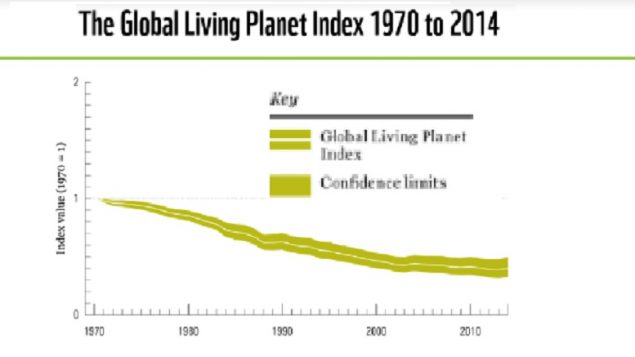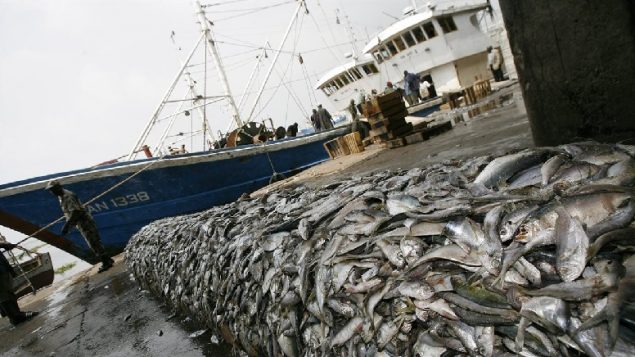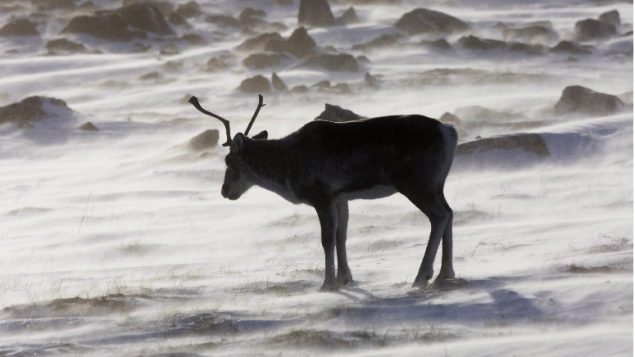A new World Wildlife Fund (WWF) study paints a very alarming picture of the state of nature worldwide. The report just out is called “The Living Planet Report 2018”.
It notes that on average there has been an overall decline of vertebrate species populations of 60% globally and this in just the short period between 1970 and 2014. The rate of outright extinctions in modern history exceeds natural extinctions by a factor of one hundred times or more beyond any natural occurrence.
James Snider is the Vice-president of Science, Research, and Innovation for WWF-Canada
ListenThe study, the latest in years of such studies, highlights the major and ongoing decline in species globally in just the past 50 years.

James Snider, WWF-Canada
It seems to underscore a general scientific opinion that because of human activity, the Earth is undergoing its sixth mass extinction. A mass extinction is defined as a loss of the majority of species in a relatively short geological time frame.
The previous extinctions were due to inevitable situations, whereas in this case, it is generally viewed as a consequence of changing of environmental conditions faster than species can adapt in addition to simply killing off of species like the dodo and passenger pigeon, the Ibex, the western Black Rhinoceros
World Wildlife Fund

As a further example, the report notes a shocking 89% reduction in vertebrate populations in Central and South America since 1970.

Graph showing global decline in species since 1970
The increased rate of extinction in all habitats we are currently observing is attributable to the direct influence of humans, such as destruction of habitat, over-fishing and pollution. However, the dwarfing of animal species in the oceans in particular can be quite clearly attributed to climate change. We should take these signs very seriously”. Prof. Dr. Wolfgang Kießling et al., Friedrich-Alexander-Universität Erlangen-Nürnberg (FAU)
Snider says people and governments must become more aware of the changes taking place around them, changes caused by our own activities.

Fish seized from two Chinese vessels in 2007 for illegal bottom dragging in waters of the Ivory Coast. A headline in a Radio-Canada report of April 4 2013 says China takes 4.6 million tonnes of fish annually from the oceans, more than 12 times their claim of 368,000 tonnes. (AFP/KAMBOU SIA-via Radio Canada)
In light of this comes an announcement today that China will lift its ban on rhino and tiger parts for use in traditional remedies. Although the move is only for parts from captive bred animals, critics fear this will only fuel poachers and further threaten already severely threatened wild species. Environmentalists are saying this is a backwards step in preservation of threatened species.
Snider says it’s also not simply a case of preserving ocean and land habitat, and not depleting plant, animal, and marine resources faster than they can be replenished, but also mitigating human activity’s effect on climate which is changing habitats faster than species can adapt.
Snider says we are now at a point in time where actions must be taken immediately and at a rate far above that currently underway if we are to ensure survival of most of the world’s species and ecosystems.
Additional information
- Guardian: July 10/17: 6th mass extinction already here
- World Wildlife Fund full report
- World Wildlife Fund- Summary report
- Daily Mail: P Weston: Mar 16/18: 6th mass extinction-global wildlife crisis
- Science Daily: Mar 27/18: mass extinction-prior warning
- Globe and Mail: I Semeniuk: Oct 29/18: caribou heading to extinction
- WWF- How many species are we losing?







For reasons beyond our control, and for an undetermined period of time, our comment section is now closed. However, our social networks remain open to your contributions.